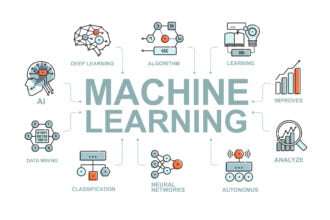Big data is disrupting the healthcare sector in incredible ways. The market for data solutions in healthcare is expected to be worth $67.8 billion by 2025, which is a remarkable 303% increase from 2017.
While stories about the sudden growth of big data in healthcare make for great headlines, they don’t always delve into the details. There are a lot of different applications for big data in the healthcare sector. One of them entails new communication systems that help with the patient experience.
EHR Solutions Are Predicated on Big Data Technology
Effective communication between medical staff and a patient is a foundation for the delivery of patient-centered care. This is one of the most important uses of big data and AI in healthcare.
To ensure an appropriate level of clinical services, physicians also need to have immediate access to patient data and know the patient’s individual medical needs. While covering all these aspects with manual processes is practically impossible, establishing a partnership with a trusted software solution company and developing a custom EHR system is a proven way to resolve the challenge.
Exoft has been working with hospitals and clinics for a long time, so we have a deep understanding of the industry specifics. This article will discuss how big data EHR adoption impacts the patient experience and what benefits it brings.
Better patient outcomes with big data
We previously talked about the benefits of big data in preventive care. One area where this can be most important is with improving communication.
The quality of patient outcomes is the decisive factor in assessing the person’s satisfaction with medical services. Since data-driven EHR systems store the full patient history in the digital format, they allow doctors to make more informed medical decisions. For instance, EHRs contain such records as the person’s chronic diseases, previous medication, allergies, and even some lifestyle factors.
When clinicians have an opportunity to review this data during the diagnostic process, they can create a more effective treatment strategy. The risk of medical errors is also significantly reduced. For patients, it means fewer side effects, absence of health-threatening drug contradiction, faster recovery, and timely discharge.
Improved convenience
Many discussions about the EHR implementation with big data are centered around the automation of physicians’ tasks and making the life of medical staff easier. However, electronic health records can improve the convenience of clinical services for patients as well, which is why improving data collection is so important. First and foremost, a person who seeks medical help doesn’t have to retell the entire treatment story every time they meet a doctor. It’s especially beneficial for people with a number of critical health conditions, seniors, and patients who have multiple health concerns and need to visit several doctors that have access to their healthcare data.
Another important aspect is that EHR solutions that rely on big data are often integrated with online scheduling systems. The latter ones allow patients to book doctor appointments in advance via the internet and avoid queues in the waiting room.
Lastly, the embedded e-prescribing functionality can save a lot of time for patients since they don’t need to visit a doctor’s office just to receive a prescription.
Enhanced safety
The adoption of electronic health records also increases the level of patient safety. The automation of clinical workflows eliminates the risk of human error and ensures that nothing is missed during the diagnostic or treatment process. The EHRs can also become lifesaving in emergencies when patients are unable to provide critical information about their health conditions or when doctors have to make quick medical decisions.
Besides, storing patient health information in a digital format allows for sharing all records with doctors who have different specialties. As a result, patients don’t have to do the same lab tests multiple times, even if they treat several diseases at once. Some EHR systems are also connected to mobile apps that send reminders and alerts to patients, helping them stick with the recommended treatment plan.
Self-management of chronic diseases
Many people with chronic diseases have to cope with them on a daily basis. But when there is no sufficient guidance and support from healthcare providers, this task can become a real burden. In this context, the availability of EHR systems plays a pivotal role. The EHR software often includes patient portals that contain all crucial information about the individual’s chronic conditions, symptoms, doctor’s notes, and care plan. Such portals can significantly reduce the number of times when a patient has to contact a doctor or visit a hospital.
Some EHRs are also integrated with laboratory information systems that provide doctors with the necessary data for monitoring the patient’s treatment results. This functionality facilitates the early detection of health issues and helps to prevent adverse events.
Effective patient-doctor communication
Most patients have no medical background. So, naturally, they might have questions about symptoms, medications, or specific health conditions after a doctor’s appointment or during a treatment process. The EHR system that contains messaging features or is connected with a third-party messaging solution can become a convenient platform for patient-doctor communication. Its usage can give clinicians better control over the treatment progress and, even more importantly, provide peace of mind for patients.
The EHR’s functionality for communication with patients can also help manage administrative aspects like billing or appointment confirmation. In particular, it can replace phone calls or emails that are usually too time-consuming for both sides.
Big Data is Invaluable for Healthcare Communication
Implementing an EHR system by a data-driven medical organization can make a considerable positive impact on the quality of patient experience. This type of medical solution can improve patient outcomes, simplify communication with a healthcare provider, fortify patient safety, and make medical services more convenient by using the most relevant data sets on patients. That’s why when building EHR software for hospitals or clinics, stakeholders and programmers should not only consider the needs of medical staff but also understand the patient perspective.









